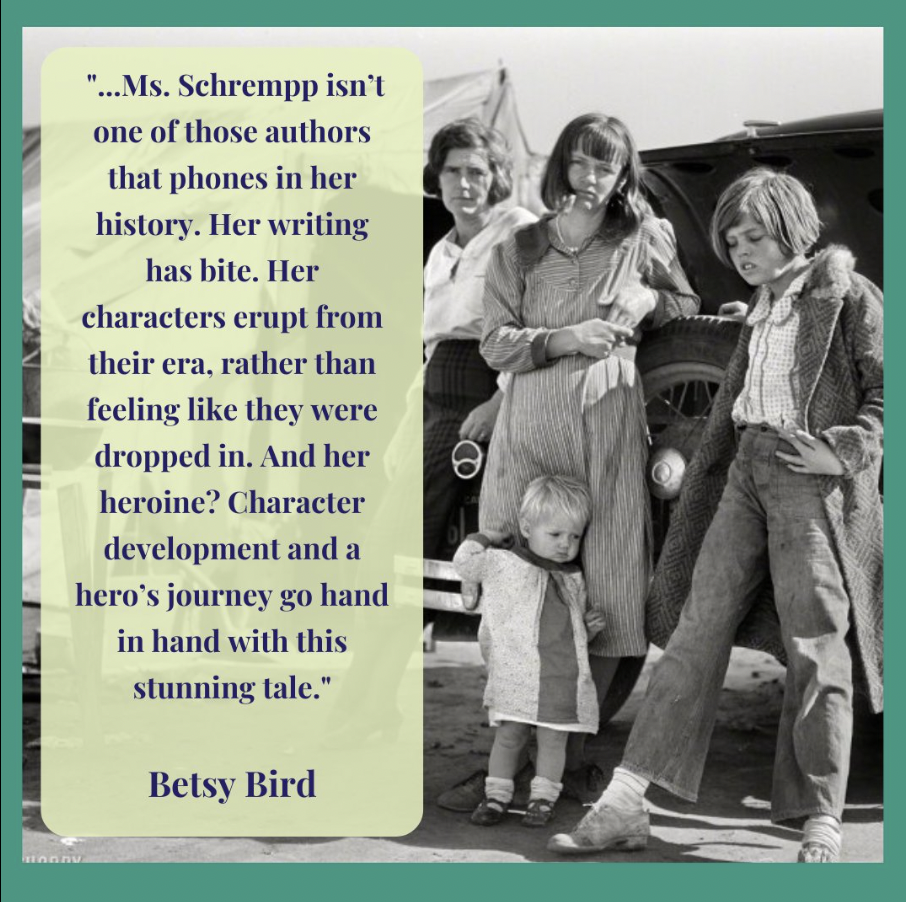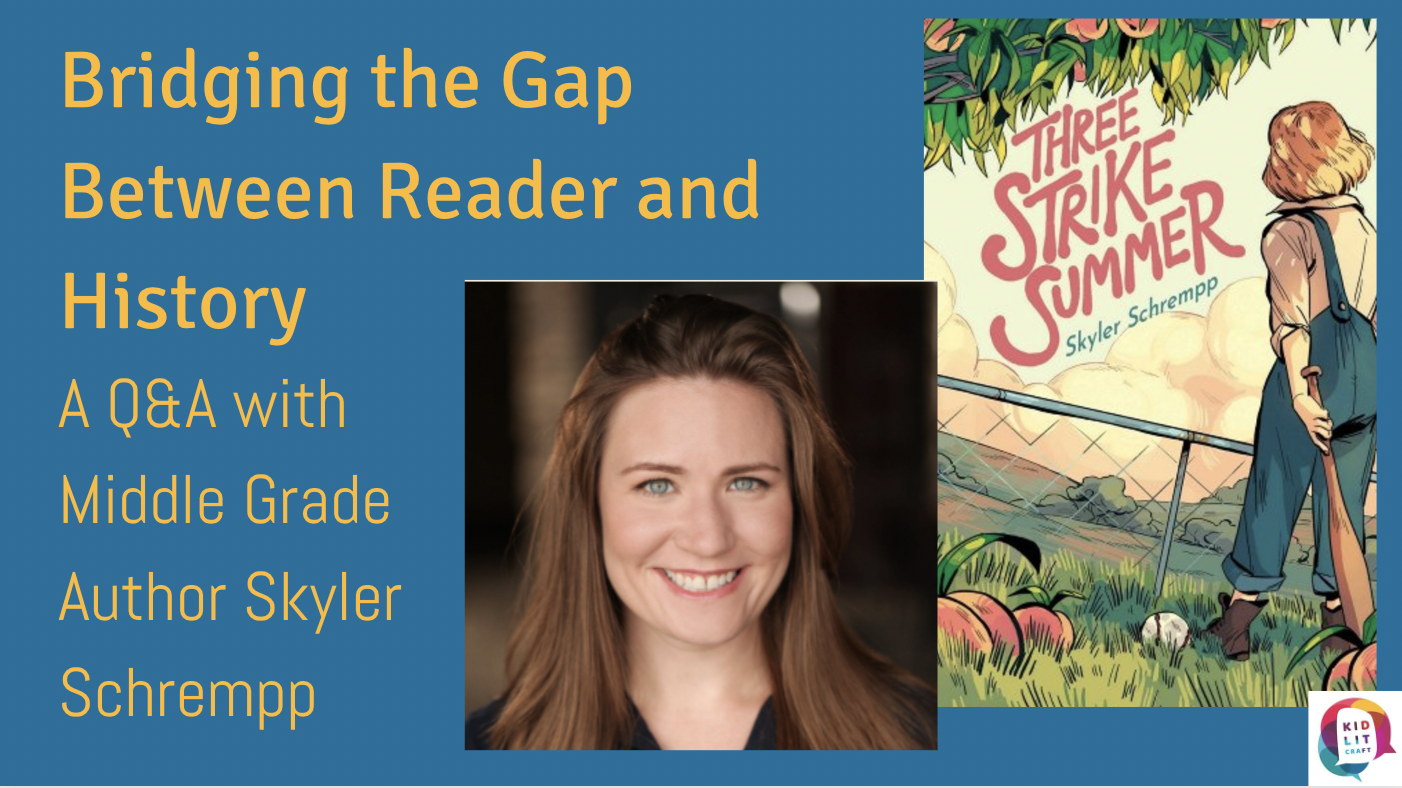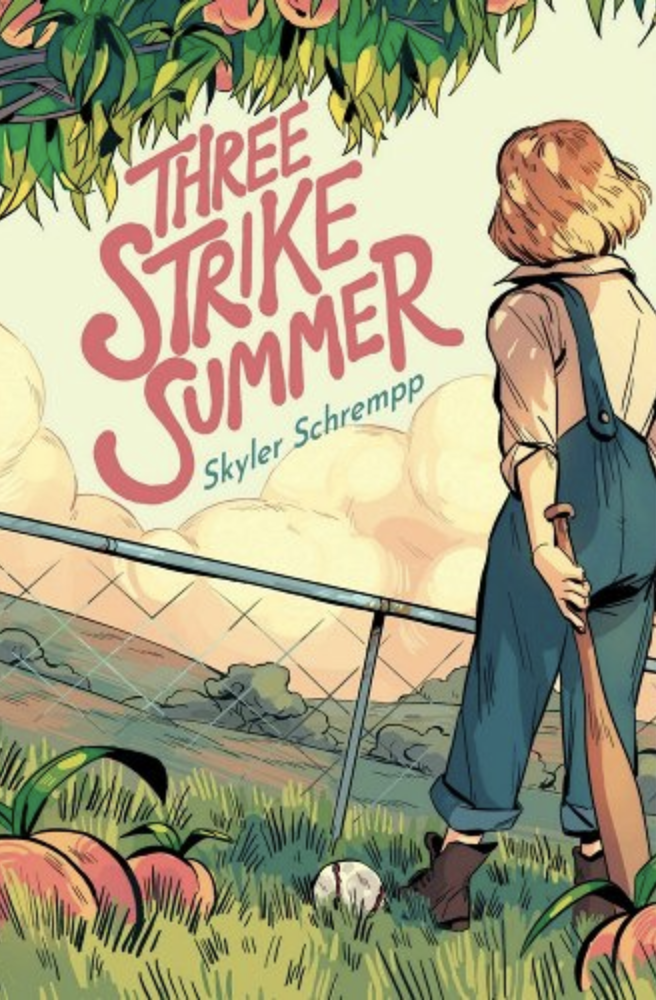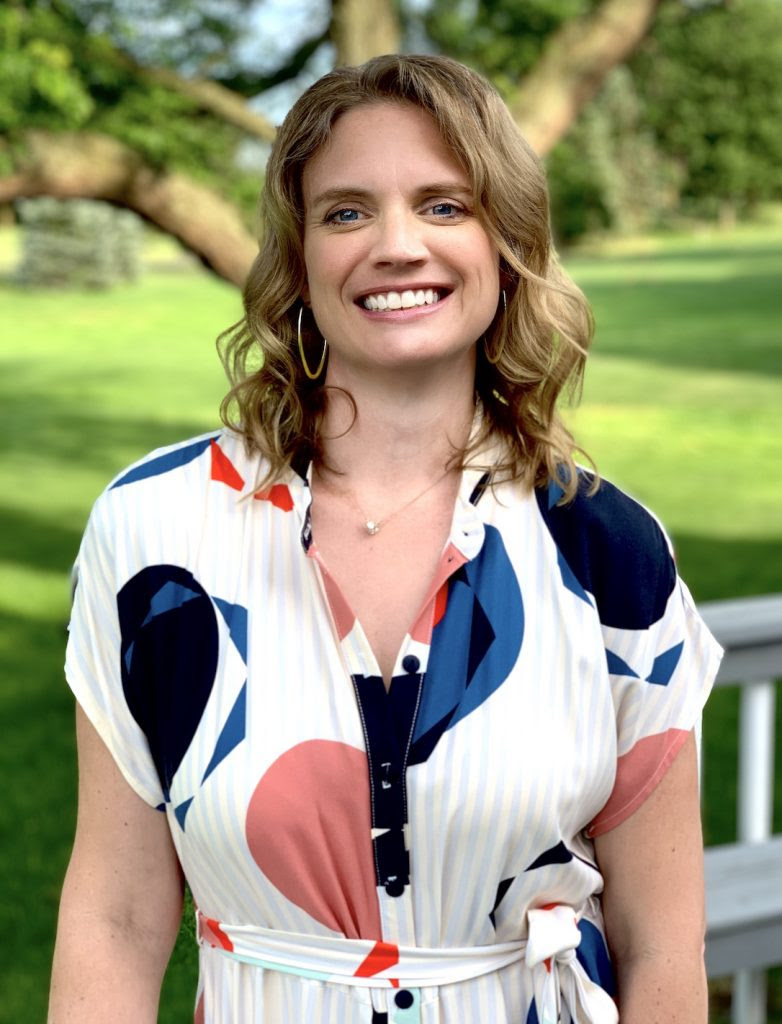Interview by Erin Nuttall
I met Skyler in a writing workshop and was immediately struck by how deep she dove into her characters’ hearts, minds, and motivations. Then I was wowed when she came back after her critique with revised pages that internalized and improved upon the comments. Nothing was precious. She took what was offered and went to work. I was truly impressed by her openness and professionalism. And ever since, I’ve taken Skyler’s attitude as my own. –Erin
KidLit Craft: Three Strike Summer is a middle grade novel about Gloria, a girl working with her family at a peach orchard in 1936 California, who desperately wants to play baseball on the secret all-boys team. What inspired you to write this story?
Skyler Schrempp: The official “point of inspiration” was Cynthia Leitich Smith’s lecture [at Vermont College of Fine Arts] on short stories. Believe it or not, Three Strike Summer started as a short story because I got so interested in trying that format out after hearing Cyn speak. (I failed, obviously!)
KLC: You use some great metaphors that are very specific to Gloria and her time & place. How would you advise someone looking to do the same in their writing?
SS: I think writers need to steep themselves in the language of their character. For Gloria, I read a lot of books from that time period, books about the time period, and watched a lot of 1930s movies. I’m a bit of a sponge when it comes to language–not speaking a new language, but picking up on turns of phrase and dialects in my own language. I also think that a good simile or metaphor should be character based.
You might notice that Gloria in particular uses a lot of food similes and metaphors. That’s not an accident. She is constantly thinking about food because there just isn’t enough of it. (I have to tip my hat to a wonderful chapter in a book called A Square Meal by Jane Ziegelman and Andrew Coe about the types of food people would have eaten on a farm that was producing well during that time.)
KLC: Three Strike Summer covers some pretty difficult historical events, how did you keep the story focused on Gloria? How did you keep the story at an appropriate level for middle grade readers?
SS: Well…the short answer is I had a lot of help and guidance from people. The truth is that life on these factory farms was a lot worse for workers than what you see in Three Strike Summer. I began writing this book while I was working on a project for my day job that was about recognizing signs of gender-based violence in kids in migration. The reality is that kids become at much higher risk for gender-based violence when they’re in migration. (I don’t mean kids who come from cultures that are traditionally in migration, but kids who are migrating due to war, environmental disaster, etc.)
Originally, there was a storyline about what Jess (Gloria’s older sister) was dealing with at the camp with the man who runs the company store. Through Gloria’s eyes, we could see that this man was a predator and that Jess was at serious risk of harm. It was 100% realistic, but early on an advisor told me that the gravitational pull of that storyline was threatening Gloria’s desire to play baseball. Jess still has to deal with unwanted comments and the uncomfortable stares of adult men that I think all girls are unfortunately familiar with. But it doesn’t pull away from Gloria.
I also really don’t believe in turning history into a fairytale, but I do believe in finding hope and agency in the face of impossible circumstances. I think the book stays MG because Gloria exercises every opportunity to take agency in a way that feels true to who she is, and also true to what would have been possible for a girl in 1936.
KLC: Do you have any tips for fellow writers who are working on Historical novels?
SS: Oh boy, yes! I think the greatest advice is to read as much as you can about the period and from the period. I often turn to research when I get stuck, and I usually very quickly find ideas in the research that move the story forward. I think it’s really important to have a realistic idea of the time and place but to be intentional about how you bring your own time and place to the story. Your audience is contemporary, but your character isn’t. You have to bridge the gap in a way that does not twist history into something it’s not while respecting a modern reader’s sensibilities.
Additionally, we hear a lot about sensitivity readers these days but there are also authenticity readers, which is crucial. Have an expert look at your work. You don’t have to take 100% of their suggestions, but you should know what liberties you’re taking and why.
KLC: Can you tell us a bit about your writing process?
- Pantser, plotter, or plants?
SS: Definitely panster, though sometimes I stop and do some serious structure in the editing process. I have tried to be a plotter and it just doesn’t suit me. I once read that George R. R. Martin talks about writers as “architects” or “gardeners”. Architects plan everything out before building and gardeners plant a bunch of things and see what grows well. I guess I see myself as more of a gardener than a panster! Pantser implies you’re really winging it, but I feel very intentional when I write…and it’s slow…like gardening.
- Character first or plot first?
SS: Well, for Three Strike Summer character definitely came first. The book I’m working on right now is a mystery and I’m finding myself having to plot very heavily and then circle back to the main character.
KLC: What is your revision process?
SS: I read everything out loud. I read slowly like I’m telling a story. That tells me almost everything I need to know about what to cut, what to add, and where I need work.
KLC: How does your background in theater influence your writing?
SS: So much.

Firstly, theatre is about what people say. You might get interiority with some plays, and certainly with classical work. But I spent years with dialogue being my main artistic tool. To that end, I love writing dialogue. I feel like it helps me unlock characters and move the plot forward.
I also think I’m pretty good at staging things in my brain. I didn’t realize how many writers struggled with this. But it’s very natural for me to instantly use things like characters’ proximity to one another, sound effects, and body language to heighten tension. I know how my scenes should look. I know how my scenes should sound. If I’m being honest, it’s much harder for me to write about what a character is feeling than about what they are doing and saying.
KLC: You had the unique experience of narrating Three Strike Summer for the audiobook. What was that experience like? Would you do it again for your next project?
SS: It was…very hard. The publisher wanted an audiobook narrator that could do everything in-house, meaning, no one was going to rent a professional studio or hire a professional sound editor for me.
I happened to be married to the head of audio at a major theatre in the Chicago area and obviously, have theatre training. Basically, I asked my husband “Can we do this?” and he said, “We can do this.” And we did it.
We set up a mini recording studio in a guest bedroom and put a futon mattress against the window for soundproofing. I should mention I live under the flight path of O’Hare. Recording was arduous. I had to stop so often. I recorded at night after putting my daughter to bed. I had terrible allergies. It was spring and this stupid night bird started to make a racket every time the sun went down. I was tired and grumpy most of the time, and I didn’t have time to do retakes or really listen to what I was producing beyond “Is this good enough?”
We also edited it and that was a whole other level of work that was very difficult to fit in between my regular job and being a parent. It was just hard. But ultimately I didn’t want anyone else to do it. I’m happy we did it. But it was by far the hardest month I’ve had in a long time.
I would do it again, but I would take longer to set up the studio and maybe even purchase more equipment. I would probably outsource editing to someone else and just pay them. I would negotiate a slower turnaround time. And I think I would stand up for myself more. I felt like I had to prove something because it seemed very clear to me that they didn’t want to hire me…until I sent my demo in. (I want to mention that my agent had my back 100% of the way during this process!) To be honest, I don’t know that I would be the best audiobook narrator for my next book (should it be published) because it’s set in northern England and I think it should sound like northern England…unless I wanted to hire a dialect coach, I might not be the right person for the job.
KLC: What do you wish you had known about the publishing industry that you know now?
SS: The less I know about the publishing industry, the happier I am as a writer.
KLC: What’s next on the horizon for your fans?
SS: I love this idea that I have fans, lol! I’m working on a YA Gothic mystery. There are spooky old houses, sounds in the walls, poison, inheritances, mistaken identities, and even a bit of romance. Unlike Three Strike Summer, which is all about a girl learning to harness and wield her impulses, Mistress of Harrow House is all about a girl learning to unleash them. It couldn’t be a more different project!

Skyler Schrempp writes books and makes theatre in her hometown of Chicago. She lives in an old drafty house with her husband Kyle, her daughter Elowen, and a black cat named Masha. She got her undergrad at Hampshire College and has an MFA from Vermont College of Fine Arts. When she’s not writing, you can find her making jam from the berries that grow in her backyard or building a fire in her fireplace (depending on the season). You can find her at https://skylerschrempp.com/.
For more about writing historical fiction, check out these author interviews!
Erin Nuttall holds an MFA in Writing for Children and Young Adults from Vermont College of Fine Arts and is an active member of SCBWI and ALAN. She lives outside of Chicago with her family where she writes stories for middle grade and young adult readers that offer a humorous take on friendship, identity, feminism, and romance.



COMMENTs:
0